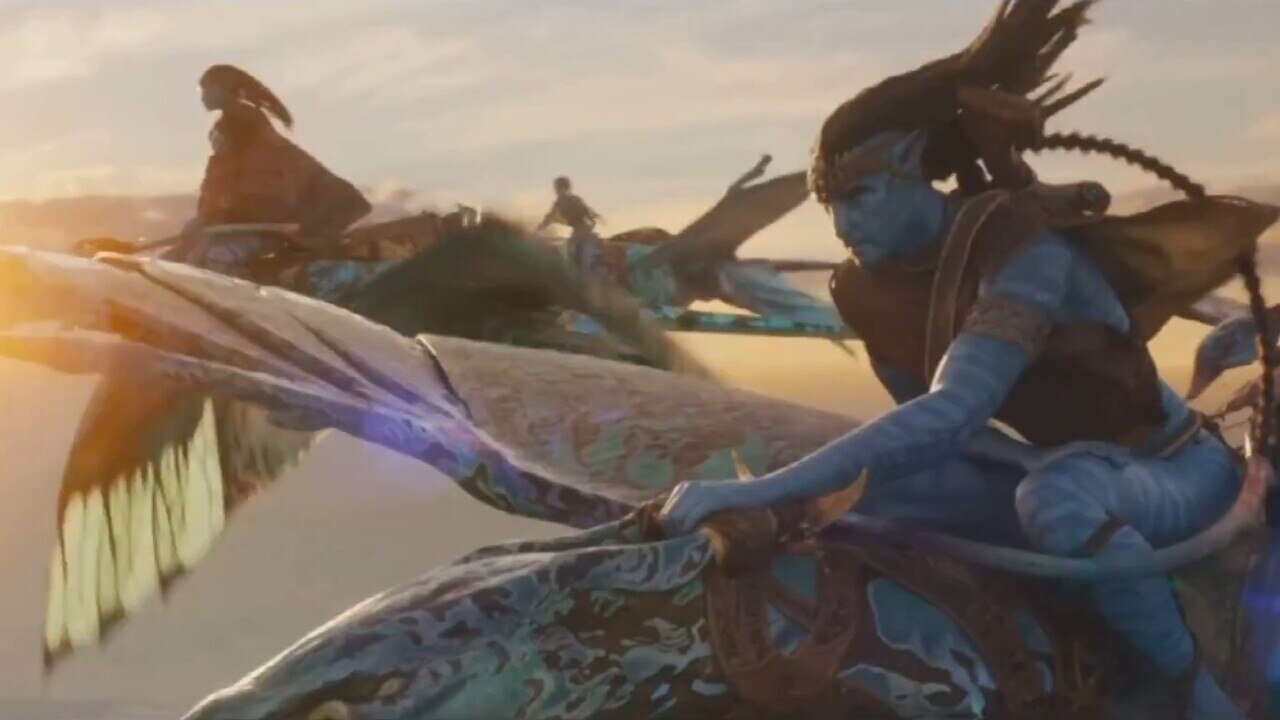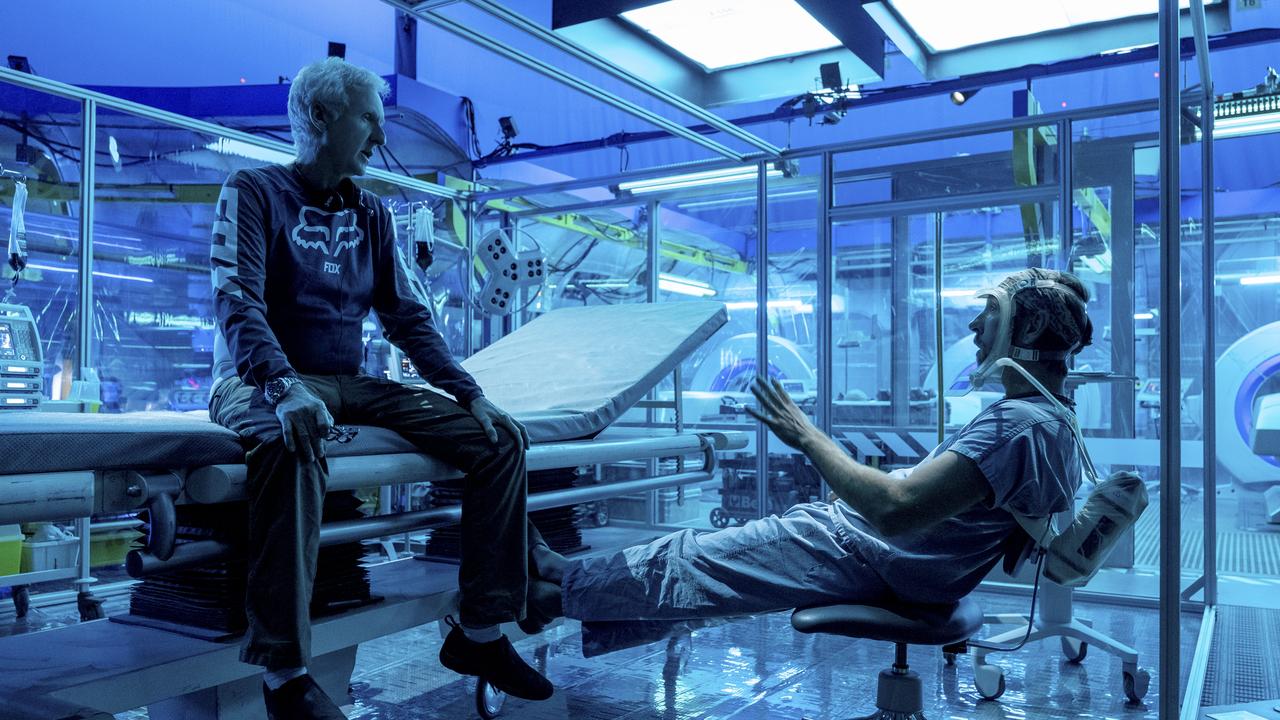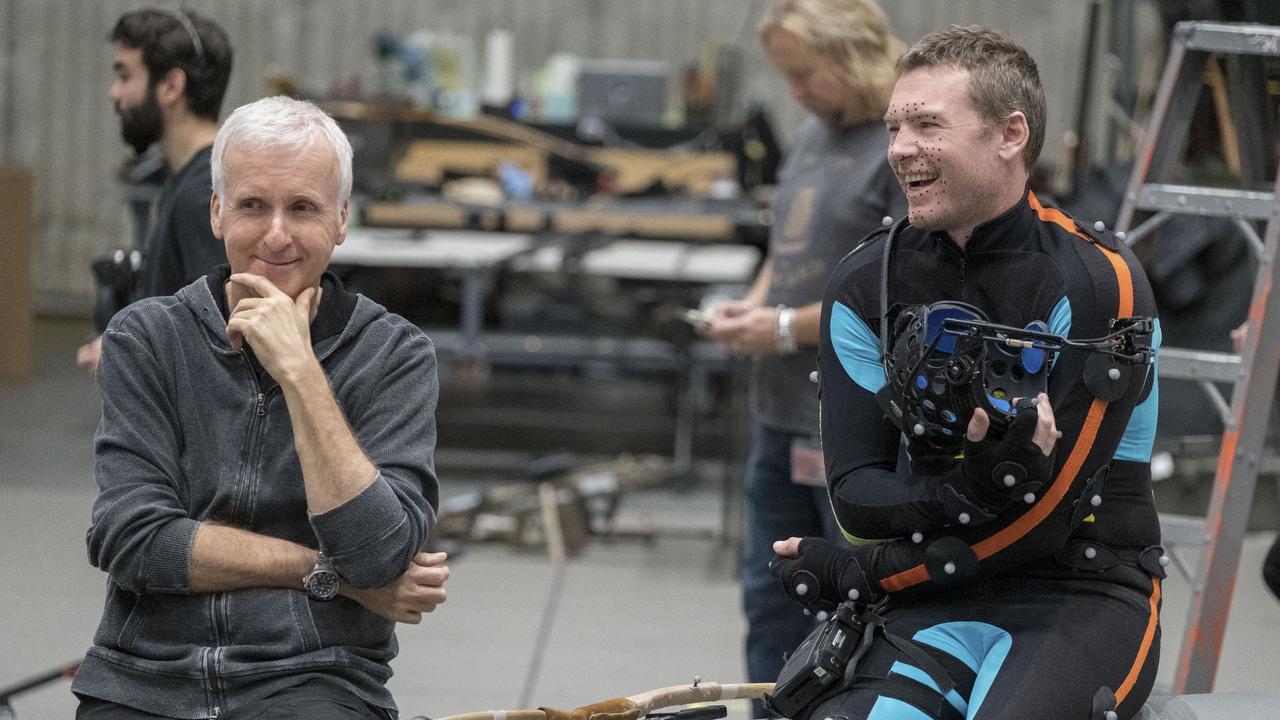Avatar director James Cameron on his career crossroads and sorrow for the Great Barrier Reef
James Cameron hopes Avatar: The Way of Water will reawaken the sense of wonder around the Great Barrier Reef as he laments its current state.

James Cameron has no idea whether he can “win the Super Bowl” for a third time with Avatar: The Way of Water.
The Oscar-winning director of Terminator and Aliens has already made box office history twice on his way to becoming one of the most successful and visionary directors of his or any other era.
The first time was nearly 25 years ago, when his romantic disaster epic Titanic was the first film to crack the $US1 billion barrier on its way to becoming highest grossing movie of all time.
He broke his own record 12 years later with the sci-fi megahit Avatar, which, after being briefly dethroned by Avengers: Endgame, remains the box office champ with a staggering $4.35 billion global take.
Both times he achieved the monumental feat, it was against the odds with many predicting prior to release that both those films would be expensive disasters.
And now, as he finally prepares to release the long-awaited sequel to Avatar, called The Way Of Water, he’s unsure of how it will be received in a movie market still reeling after years of disruption, first from the rise of streaming and then from two years of Covid-induced torpor.
But over Zoom call from his adopted home in New Zealand, where he has been furiously working to finish the three-hour effects and performance-capture heavy movie, Cameron is philosophical about the financial factors he can’t control and enthusiastic about the creative ones he could.

“I already won the Super Bowl twice so it’s mine to lose at this point, you know? And I thought if I’m going to take that big chance again and put myself up there in a big spotlight and say, ‘Okay, we’re going to try to do it a third time folks’ …,” Cameron trails off with a shrug.
“The upside for me was to create a persistent world in a great amount of detail, and then just allow people to inhabit it. If this all works out, and I can’t say it will sitting here – I know we’ve made a beautiful movie, there’s no question in my mind about that – but is there still a market where a movie this big and expensive can make a profit? That’s an unknown factor that we will just have to see.”
In the 13 years since the first film blew the world away with the beautifully realised alien world of Pandora and its blue-skinned inhabitants, the Na’vi, and its environmentally charged message of rapacious invaders wanting to destroy nature and culture in the pursuit of wealth, Cameron had taken time out to pursue his other passions.
In 2012 he became the first person to visit the deepest part of the ocean, the Mariana Trench in the Sydney-built submersible Deepsea Challenger.
The vegan and committed environmentalist also put his time and money into developing sustainable farming practices and raising awareness about climate change, deforestation, ocean conservation and indigenous rights through his Avatar Alliance Foundation.
So committed was he to helping save the world from itself, that he wasn’t even sure that he wanted to return to filmmaking.

“I sat at a crossroads where I said, ‘Do I want to really go down this path again?’,” says Cameron.
“And the answer was, maybe not – maybe I just want to go do ocean exploration. I love that and I’m perfectly happy to just do that.”
In the end, Cameron decided that what his does with Avatar on screen and his work with the foundation off-screen are really all part of the same continuum.
Cameron wrote the first film inspired by indigenous cultures around the world who have been displaced by conquest or industry, some of whom he says then contacted him to say “hey, you just made a movie about us”.
“So many indigenous cultures around the world are facing that kind of encroachment, whether it’s an extraction industry, downstream from oil drilling or gold mining that’s creating toxic spills in their rivers, or just getting pushed out of the way by the bulldozers so that they can grow soy for cattle so that people can have McDonald’s,” he says.
“And they were all feeling the same thing everywhere – a loss of culture and a loss of land.”
In The Way of Water, Cameron shifts his focus from the rainforest to the reefs, as his heroes Jake (Aussie Sam Worthington) and Neytiri (Zoe Saldana) are forced to flee their home with their children and come into contact with a water-based Na’vi tribe, the Metkayina.
Cameron’s Titanic star Kate Winslet joins the cast as a wife of the Cliff Curtis’ Metkayina chief, and his ever-versatile Aliens star Sigourney Weaver switches from her role as a human scientist in the first film to play Kiri, Jake and Neytiri’s adopted teenage Na’vi daughter.

Rather than taking an Aquaman approach and simulating underwater environments with actors on wires, Cameron built huge tanks to shoot in water for real, meaning the actors all had to learn how to free dive in their hi-tech performance capture suits.
“Most actors can’t ride a horse when they when they come in, although they say they can,” says Cameron with a laugh.
“And most actors can’t hold their breath for three or four minutes although they say ‘yeah, I can learn how to do that’. And it turned out to be true. Kate Winslet for example – she and Sigourney were both rock stars. They were in the six and seven minute breath-hold class, which is impressive.”
If the rainforests of the first Avatar film were inspired in part by Queensland’s Daintree, the Great Barrier Reef has certainly made an impact on The Way of Water.
Cameron says he has been fascinated by the natural wonder of the world for more than 50 years and he laments its current state and fears for its future.
“Half a century is not that long in the grand scheme, but enough time for the Great Barrier Reef to be extremely degraded with something like a 90% degradation rate and a lot of bleaching events and species loss, biodiversity loss. And if we stay on the course we’re on, all reefs everywhere have 50 years left, period.
“So, a film like this hopefully can reawaken in people that longing and that love, that awe and mystery, if you will, that sense of wonder, for what’s really out there on our actual planet.”
Avatar: The Way of Water is in cinemas from Thursday.




